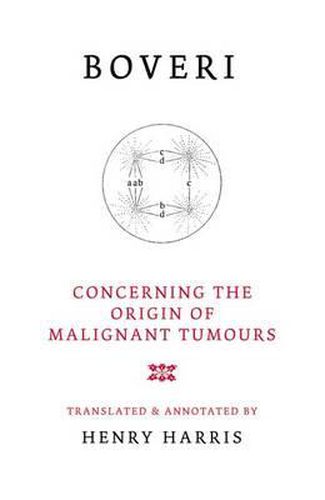Readings Newsletter
Become a Readings Member to make your shopping experience even easier.
Sign in or sign up for free!
You’re not far away from qualifying for FREE standard shipping within Australia
You’ve qualified for FREE standard shipping within Australia
The cart is loading…






Written almost a hundred years ago, Theodor Boveri’s Zur Frage der Entstehung maligner Tumoren has had a momentous impact on cancer research. In it he argues that malignancy arises as a consequence of chromosomal abnormalities and that multiplication is an inherent property of cells. With astonishing prescience, Boveri predicts in this monograph the existence of tumor suppressor mechanisms and is perhaps the first to suggest that hereditary factors (genes) are linearly arranged along chromosomes. This new translation by Sir Henry Harris, Regius Professor of Medicine Emeritus at Oxford University and former Editor-in-Chief of Journal of Cell Science, includes extensive annotations in which he discusses the relevance of Boveri’s views today. It is essential reading for all cancer researchers, as well as those interested in the history of cytogenetics and cell biology.
$9.00 standard shipping within Australia
FREE standard shipping within Australia for orders over $100.00
Express & International shipping calculated at checkout
Written almost a hundred years ago, Theodor Boveri’s Zur Frage der Entstehung maligner Tumoren has had a momentous impact on cancer research. In it he argues that malignancy arises as a consequence of chromosomal abnormalities and that multiplication is an inherent property of cells. With astonishing prescience, Boveri predicts in this monograph the existence of tumor suppressor mechanisms and is perhaps the first to suggest that hereditary factors (genes) are linearly arranged along chromosomes. This new translation by Sir Henry Harris, Regius Professor of Medicine Emeritus at Oxford University and former Editor-in-Chief of Journal of Cell Science, includes extensive annotations in which he discusses the relevance of Boveri’s views today. It is essential reading for all cancer researchers, as well as those interested in the history of cytogenetics and cell biology.